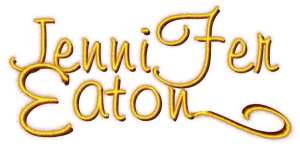
Based on personal experience as a first-reader intern for a literary agency, I’m sharing what can get your manuscript past the gatekeeper (the intern!) and into the hands of the agent.
PACING AND TENSION – TOO MUCH OR TOO LITTLE? Part 2
Be aware of things that can slow down your story – or make it race by too fast – and deflate the tension.
Backstory, continued
By weaving in just the necessary information in short bursts throughout your story it will:
*Keep the reader’s interest
*Keep tension high
*Keep the reader wondering
*Keep it dramatic – no matter the genre
Could your action be bogged down?
 My First Reader Notes: “In action scenes we were slowed down by long, descriptive sentences such as during this chase scene: ‘Mr. Brown slipped over his excessively waxed floors.’ ‘His frantic breath pressed the pause button on the hot chase.’ ‘My toes became the texture of raisins as they squished up against one another like slimy slices of sautéed mushrooms.’” Descriptive sentences like these forced me to pause (and trip) in this supposed fast-paced action scene and have to create the visual from the words before moving on in the story. You don’t want to do this!
My First Reader Notes: “In action scenes we were slowed down by long, descriptive sentences such as during this chase scene: ‘Mr. Brown slipped over his excessively waxed floors.’ ‘His frantic breath pressed the pause button on the hot chase.’ ‘My toes became the texture of raisins as they squished up against one another like slimy slices of sautéed mushrooms.’” Descriptive sentences like these forced me to pause (and trip) in this supposed fast-paced action scene and have to create the visual from the words before moving on in the story. You don’t want to do this!
Can there be too much action on your story?
 Is your story TOO active, TOO reactive and over-dense with words, concepts and emotions? This makes for a frantic tale, every moment fraught with intensity. It comes at you from every angle and is exhausting. The desire should be to invite the reader to turn the pages not run for cover.
Is your story TOO active, TOO reactive and over-dense with words, concepts and emotions? This makes for a frantic tale, every moment fraught with intensity. It comes at you from every angle and is exhausting. The desire should be to invite the reader to turn the pages not run for cover.
TIPS: *How to change this? Incorporating the setting instead of using biological emotion would add a richer layer to the story.
*Take a break from the action – let it explode all around, then let it settle and give your character time to digest and reflect on all that has happened. They need to breathe.
TIPS FOR PACING AND TENSION:
- Deciding HOW and WHEN to reveal information is often more important than the info itself. Decide on your method used to make a big reveal to increase pacing and tension.
 HINT: Don’t bury it in the middle of a paragraph! (YES, I’ve done this too!).
HINT: Don’t bury it in the middle of a paragraph! (YES, I’ve done this too!). - Move the story along by cutting out extra, unnecessary details in action moments.
- SHOW more of what is happening around your character vs. his telling us.
- Don’t have your character waffle back and forth! Chart their growth as they grow in the story.
Now go. Work on making pacing and tension flow with each scene! It may help you get past the gatekeeper.
 About Donna: Donna Galanti is the author of A Human Element and A Hidden Element (Imajin Books), the first two award-winning, bestselling books in the paranormal suspense Element Trilogy, and the middle grade fantasy adventure series Joshua and The Lightning Road (Month9Books). Donna is a contributing editor to International Thriller Writers the Big Thrill magazine and blogs at Project Mayhem. She lives in Pennsylvania with her family in an old farmhouse. Visit her at www.donnagalanti.com.
About Donna: Donna Galanti is the author of A Human Element and A Hidden Element (Imajin Books), the first two award-winning, bestselling books in the paranormal suspense Element Trilogy, and the middle grade fantasy adventure series Joshua and The Lightning Road (Month9Books). Donna is a contributing editor to International Thriller Writers the Big Thrill magazine and blogs at Project Mayhem. She lives in Pennsylvania with her family in an old farmhouse. Visit her at www.donnagalanti.com.
About Joshua and the Lightning Road:
 Twelve-year-old Joshua Cooper learns the hard way that lightning never strikes by chance when a bolt strikes his house and whisks away his best friend—possibly forever. To get him back, Joshua must travel the Lightning Road to a dark world where stolen human kids are work slaves ruled by the frustrated heirs of the Greek Olympians who come to see Joshua as the hero prophesied to restore their lost powers. New friends come to Joshua’s aid and while battling beasts and bandits and fending off the Child Collector, Joshua’s mission quickly becomes more than a search for his friend—it becomes the battle of his life.
Twelve-year-old Joshua Cooper learns the hard way that lightning never strikes by chance when a bolt strikes his house and whisks away his best friend—possibly forever. To get him back, Joshua must travel the Lightning Road to a dark world where stolen human kids are work slaves ruled by the frustrated heirs of the Greek Olympians who come to see Joshua as the hero prophesied to restore their lost powers. New friends come to Joshua’s aid and while battling beasts and bandits and fending off the Child Collector, Joshua’s mission quickly becomes more than a search for his friend—it becomes the battle of his life.








 About Donna: Donna Galanti is the author of A Human Element and A Hidden Element (
About Donna: Donna Galanti is the author of A Human Element and A Hidden Element (













 You might think this article was about the technical aspects of formatting, but you would only be partially correct. What this article is truly about is respect. If you want to succeed at this dedicated hobby you’ve chosen to pursue (believe me, you don’t want to think of it as a career…it only leads to masses of frustration) then you need to get your head in the correct mindset. You are not alone in your desire. There are countless individuals who want to be authors. There are a considerably less individuals who are in a position to make that possible. Editors have to look through hundreds, even thousands of manuscripts every year. I don’t think I have to tell you that they can’t accept them all. You know what that means? It is your job to make their job as easy for them as possible. You can do that in two ways:
You might think this article was about the technical aspects of formatting, but you would only be partially correct. What this article is truly about is respect. If you want to succeed at this dedicated hobby you’ve chosen to pursue (believe me, you don’t want to think of it as a career…it only leads to masses of frustration) then you need to get your head in the correct mindset. You are not alone in your desire. There are countless individuals who want to be authors. There are a considerably less individuals who are in a position to make that possible. Editors have to look through hundreds, even thousands of manuscripts every year. I don’t think I have to tell you that they can’t accept them all. You know what that means? It is your job to make their job as easy for them as possible. You can do that in two ways:





.jpg)


